NHL Broadcaster Phil Bourque reflects on career
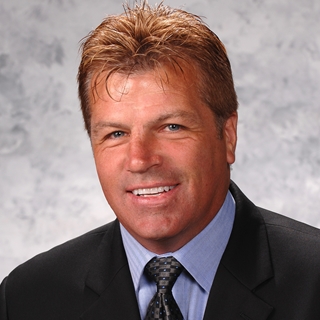
November 19, 2018
Two-time Stanley Cup champion, Phil Bourque, shared the ups and the downs he had in his storied career at “Faceoff for Your Future”, an event hosted by the Office of Academic Success this past Friday in the Convocation Center.
Born and raised in Boston, Massachusetts, Bourque made it clear from the start that like most of the audience, he is not a Patriots or Tom Brady fan.
“I am here to say that I am a Pittsburgher,” said Bourque. “I feel like I was born here.”
At the age of three, Bourque found his love for hockey when he went to a public skate with a family friend.
“He put me on the ice with a pair of double runners and I took to it like a duck to water,” said Bourque.
Bourque’s family friend told his dad that he was a natural and that he should let him try to play hockey.
“I was that crazy kid. If you have that passion, go for it. That was my passion. Skating and hockey,” said Bourque.
Bourque shed a light on forgiveness and mental/physical abuse as well, that was just as powerful as his overall message to the audience. During his youth days, his father verbally and physically abused him depending on how good or bad he played. The abuse became so bad that Bourque did not speak to his father for 10 years when he was playing in the NHL.
“As much bad as he did with the abuse, he did a lot of good too,” Bourque said. “Because of our falling out, he didn’t get to experience those special moments with his son.”
He explained that forgiving his father was one of the most cleansing things he has ever done in his life. His advice to the audience was to call that person up and have a conversation.
“Don’t go through life having those regrets,” said Bourque.
Sophomore, Kellie Lynch said it made her stop and think when Bourque told the story of rekindling the relationship with his father.
“My favorite story was about him reconnecting with his father and the positive impact it had on him,” said Lynch.
Even though he has forgiven his father, the abuse once became so bad that Bourque almost ended his hockey career forever.
“When I turned 15, I quit hockey and said that’s it. I can’t take this anymore,” said Bourque. “Luckily, I had some really good friends around me that said ‘we need you’.”
After graduating high school, Bourque’s dad wanted him to go to college,
but he had a different plan in mind.
“All I wanted to do was the play in the NHL,” said Bourque.
In 1980, he made his first steps to get into the NHL by trying out for an amateur hockey team in Ontario. The draft came and went, and Bourque had not been drafted by a team.
“I thought about what I should do now. Then, I got two phone calls, one from my hometown Boston Bruins and the other was from the Pittsburgh Penguins,” said Bourque.
After a few tryouts, he was offered a three-year contract by Baz Bastien, the Penguins general manager at the time.
“There was a long pause and I thought he was going to change his mind,” said Bourque.
“He said because I really like you, I am going to give you a 5,000 dollar signing bonus.”
After his signing, Bourque continued his professional career for 18 years and won two Stanley Cup rings during Penguins’ 1991 and 1992 season. During his time as a radio broadcaster, Bourque has also earned three more rings.
“I have lived a crazy, crazy life as a hockey player and now as broadcaster,” said Bourque.
Bourque showed off his rings to the audience, letting them take pictures and try them on.
This is not the first time that Bourque as spoken on the California campus. In 2010, Bourque spoke in Morgan Hall about leadership and last fall was a part of the food donation drive.
“I have been telling everyone since I have been here that I love this campus,” said Bourque. “When I came to this campus, I came through that front gate and I said, ‘I wish I went to school here’. This place is amazing.”
Bourque explained that one of his goals was to motivate and inspire the audience. One of the biggest messages Bourque wanted to put an emphasis on was dedication.
“This school is behind you,” said Bourque. “However you need to make it happen, this school has the options to make it happen for you.”

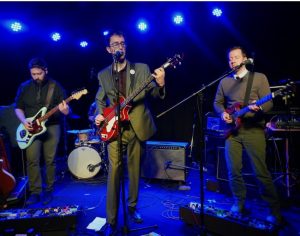

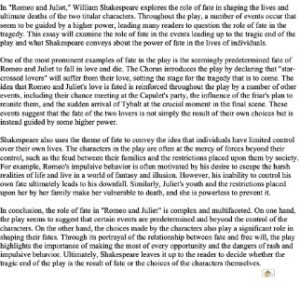

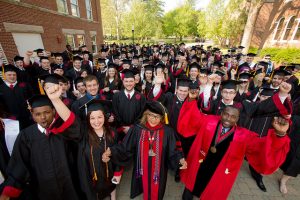

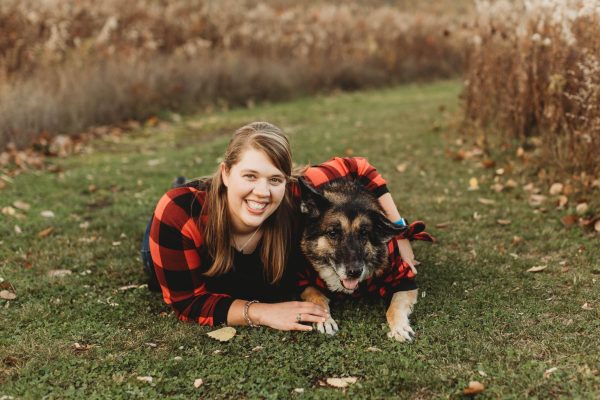
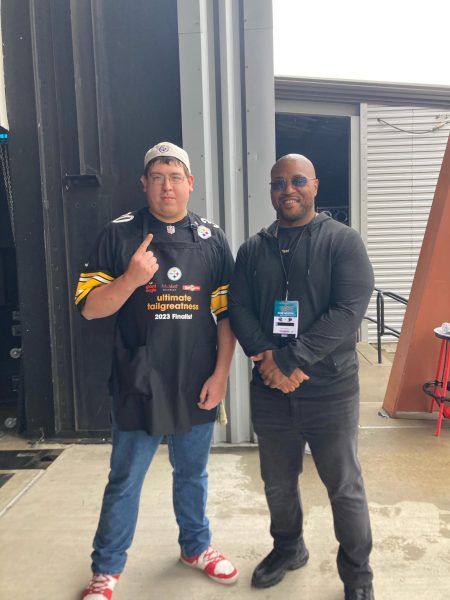
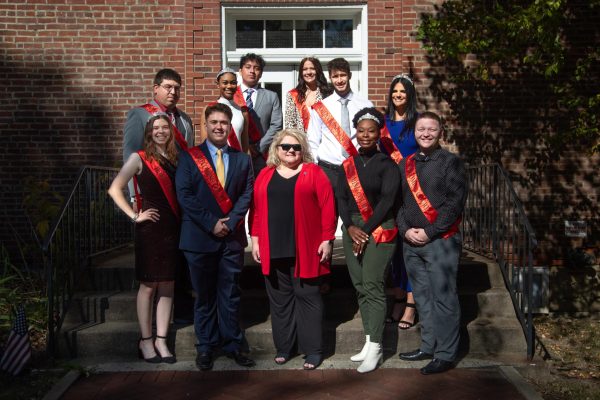
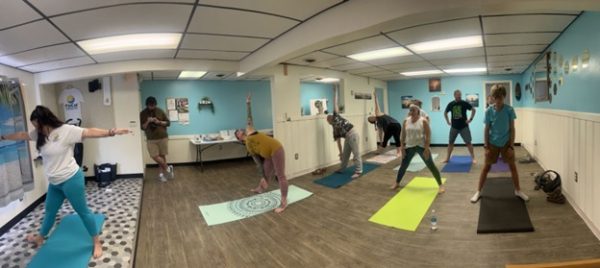
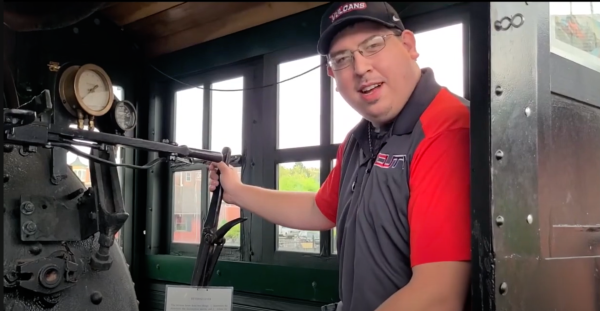
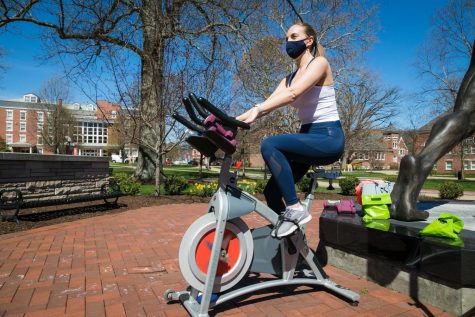

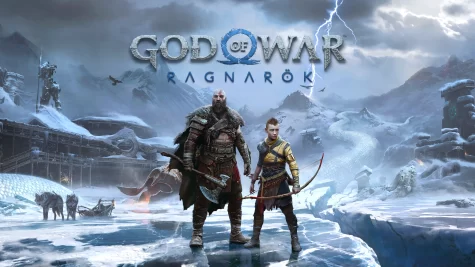

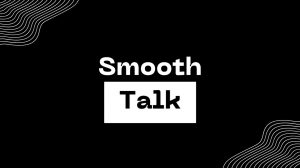
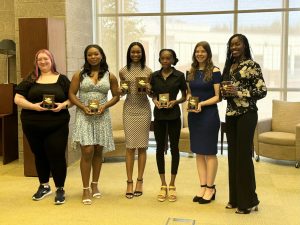
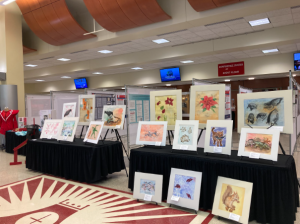

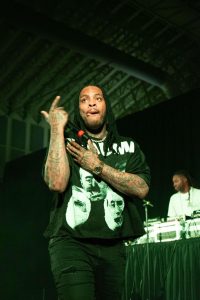

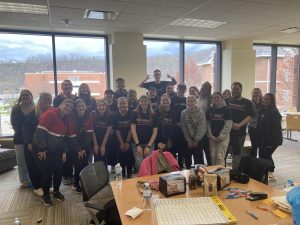

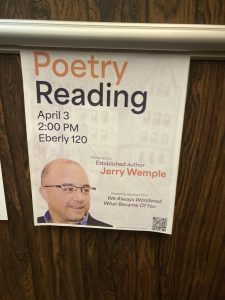
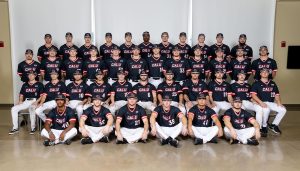
Stephen Thomas • Feb 12, 2019 at 9:52 pm
Hey Phil. , Steve Thomas a childhood friend that spent at least 200 to 300 games and practices . I remember skating in your back yard for hours and hours , your dad cut out a piece of plywood and put it in front of a net that your father made for you , 5 holes you know what they were . I remember your family and the time we spent playing hockey . We both had a real passion for hockey . You really were blessed by your family . I remember you and I would go to church every Friday night . Your father was very deciplind . If it were not for him you never would have a made it in the nhl . Your father was the reason that you are were you are . He was a great coach ! And knew talent . Yes he was somewhat pushy but not abusive ! I am glad you saw the light and forgave him . I only wish my dad would have taken somewhat of the same course ! I still think of our child hood days and the fun we had playing the sport we loved ! God bless you and your family !! You have had a great life !